Immune system
Recent articles
Rethinking mental health: The body’s impact on the brain
Mounting evidence illustrates how peripheral molecules can influence brain function, offering new therapeutic targets.
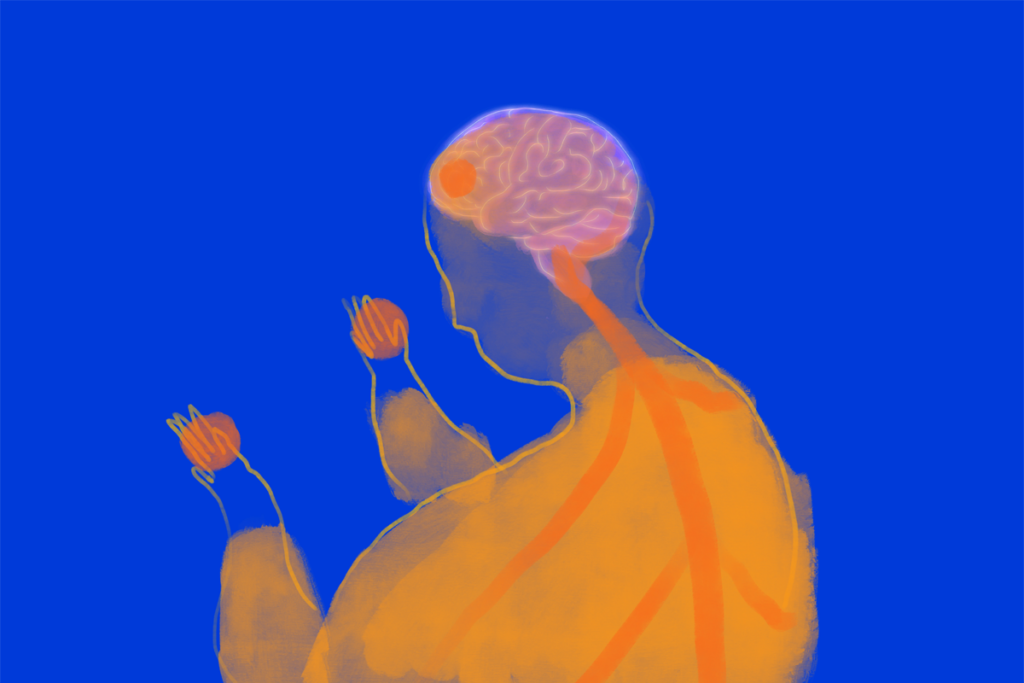
Rethinking mental health: The body’s impact on the brain
Mounting evidence illustrates how peripheral molecules can influence brain function, offering new therapeutic targets.
Immune cell interlopers breach—and repair—brain barrier in mice
The choroid plexus, the protective network of blood vessels and epithelial cells that line the brain’s ventricles, recruits neutrophils and macrophages during inflammation, a new study shows.
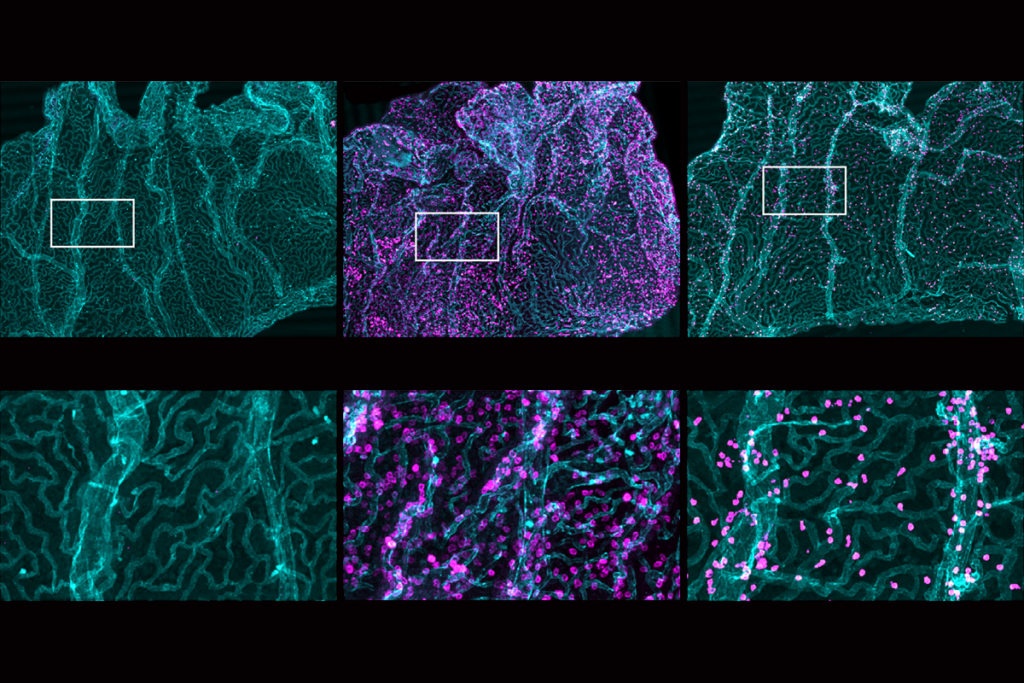
Immune cell interlopers breach—and repair—brain barrier in mice
The choroid plexus, the protective network of blood vessels and epithelial cells that line the brain’s ventricles, recruits neutrophils and macrophages during inflammation, a new study shows.
Microglial overreaction to atypical neurons may drive autism
In mice and organoids lacking a neuronal protein, microglia prune synapses to excess.
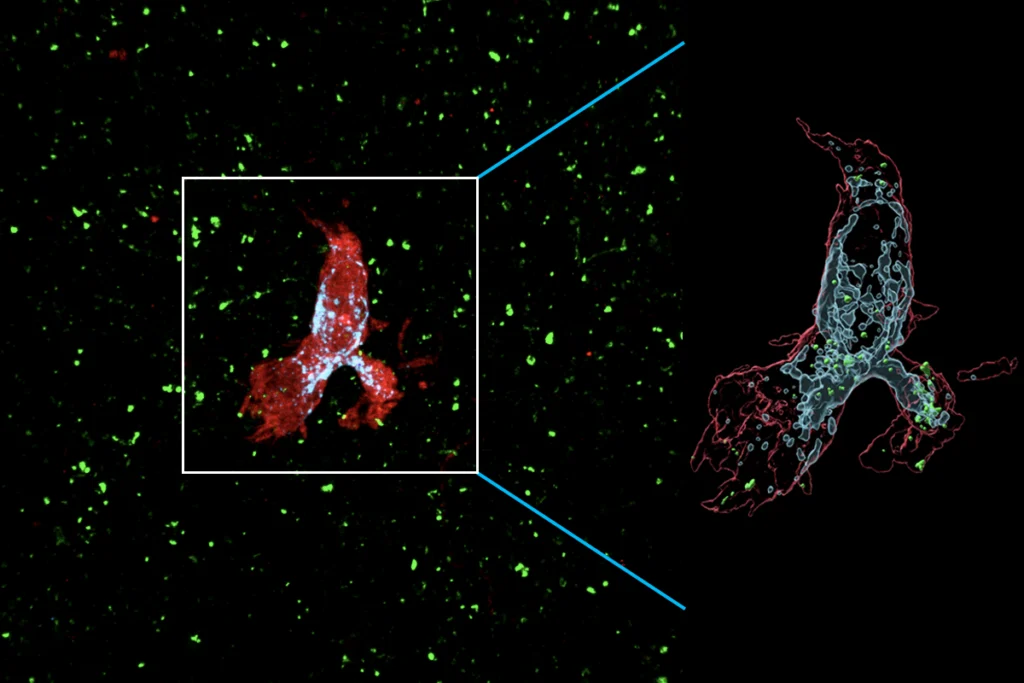
Microglial overreaction to atypical neurons may drive autism
In mice and organoids lacking a neuronal protein, microglia prune synapses to excess.
Immune-activation model mice escape infantile amnesia, retain early memories
Male pups born to mothers treated with immune-stimulating molecules show autism-like behaviors and, unlike wildtype animals, do not lose memories formed during early life.
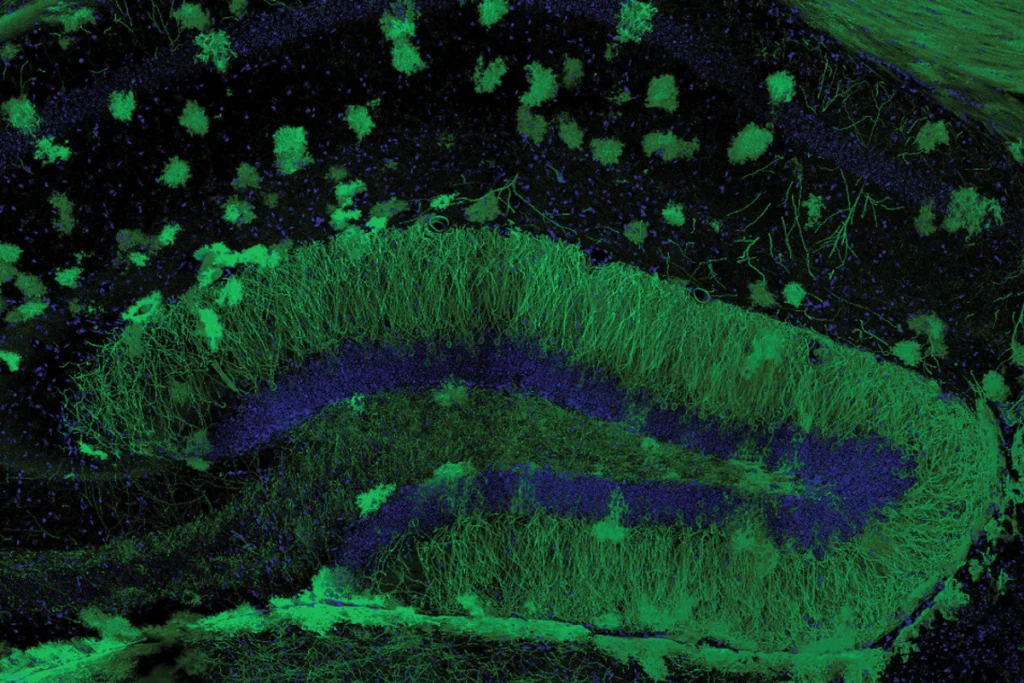
Immune-activation model mice escape infantile amnesia, retain early memories
Male pups born to mothers treated with immune-stimulating molecules show autism-like behaviors and, unlike wildtype animals, do not lose memories formed during early life.
Atlas charts cells of human placenta, uterus across early pregnancy
A new resource gives an unparalleled look at how fetal placental cells attach to the uterine wall and remodel maternal blood vessels to access nutrients.
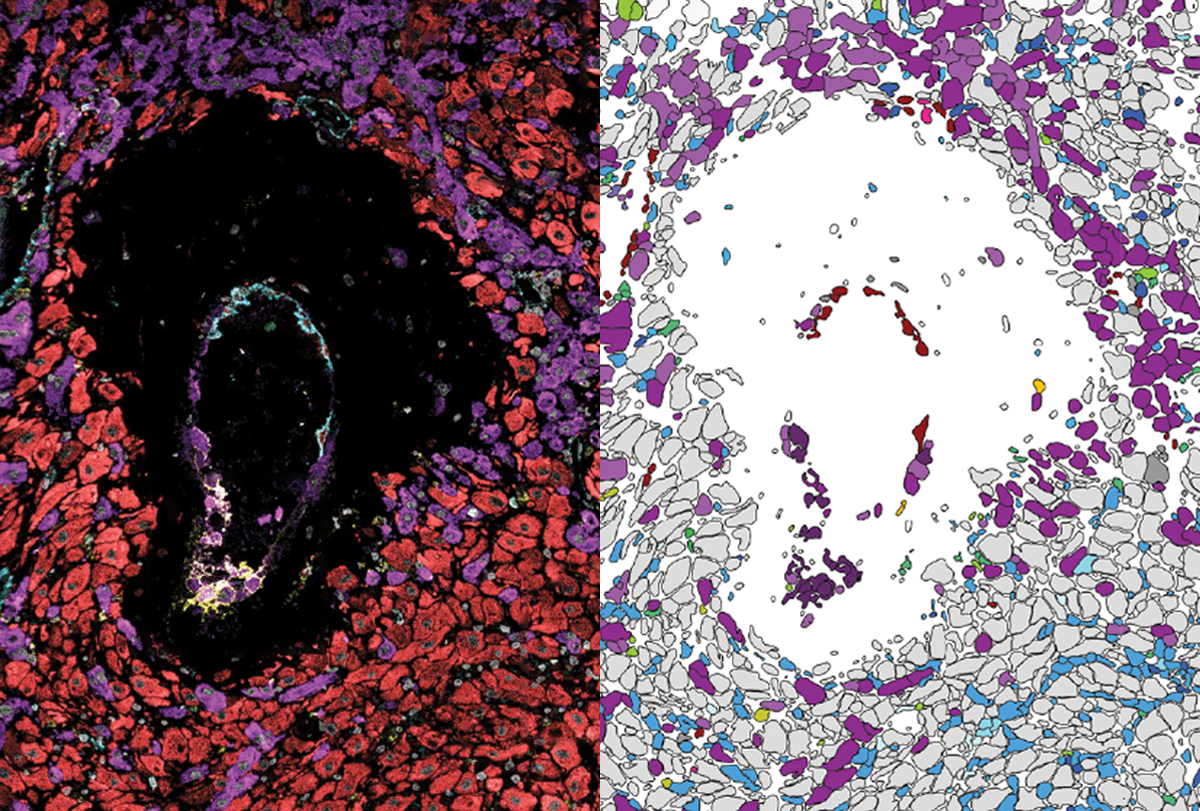
Atlas charts cells of human placenta, uterus across early pregnancy
A new resource gives an unparalleled look at how fetal placental cells attach to the uterine wall and remodel maternal blood vessels to access nutrients.
‘wildDISCO’ cocktail yields whole-body maps of mouse neurons and more
A new technique used to create see-through rodents can help scientists analyze how the nervous system interacts with other body systems.
‘wildDISCO’ cocktail yields whole-body maps of mouse neurons and more
A new technique used to create see-through rodents can help scientists analyze how the nervous system interacts with other body systems.
Serotonin powers pruning of developing brain circuits in mice
Mice with microglia missing receptors for the neurotransmitter serotonin since birth have too many synapses and show social difficulties in adulthood.
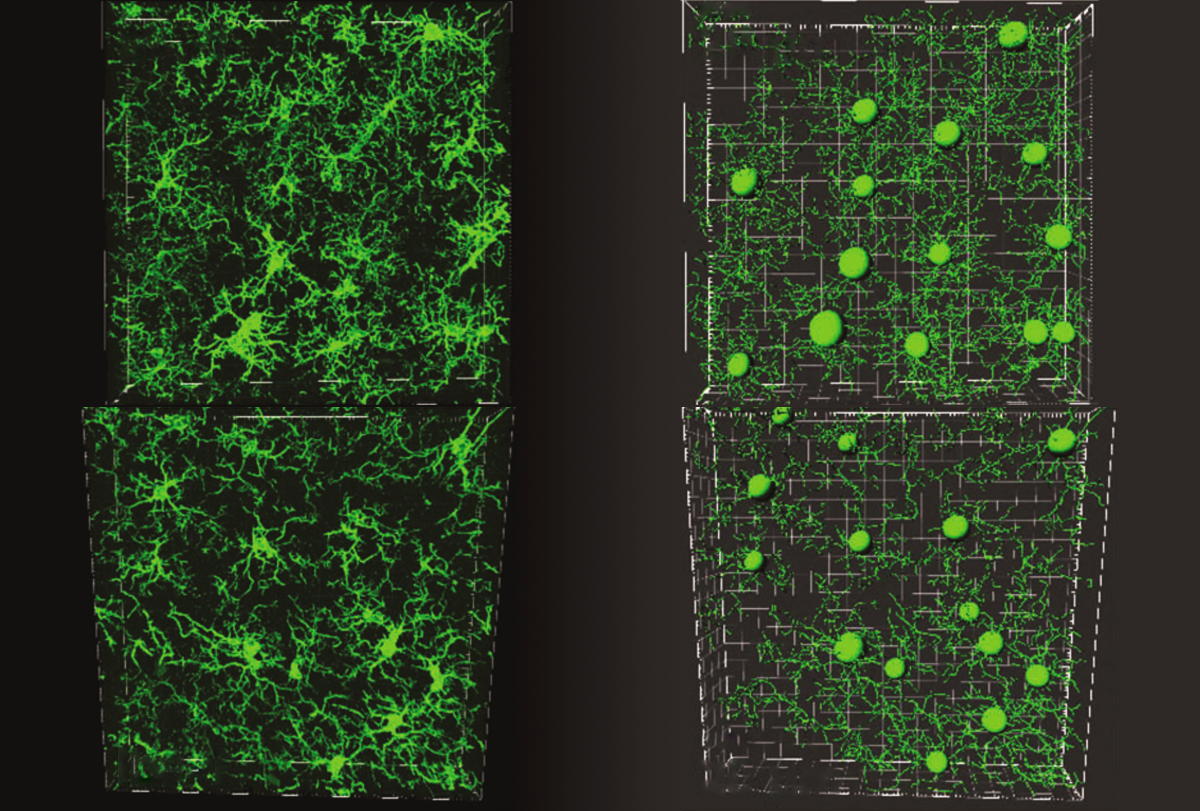
Serotonin powers pruning of developing brain circuits in mice
Mice with microglia missing receptors for the neurotransmitter serotonin since birth have too many synapses and show social difficulties in adulthood.
Maternal immune response dulls male rats’ social radar
Male rats prenatally exposed to a maternal immune response have atypical responses to other rats in distress, according to a new study.
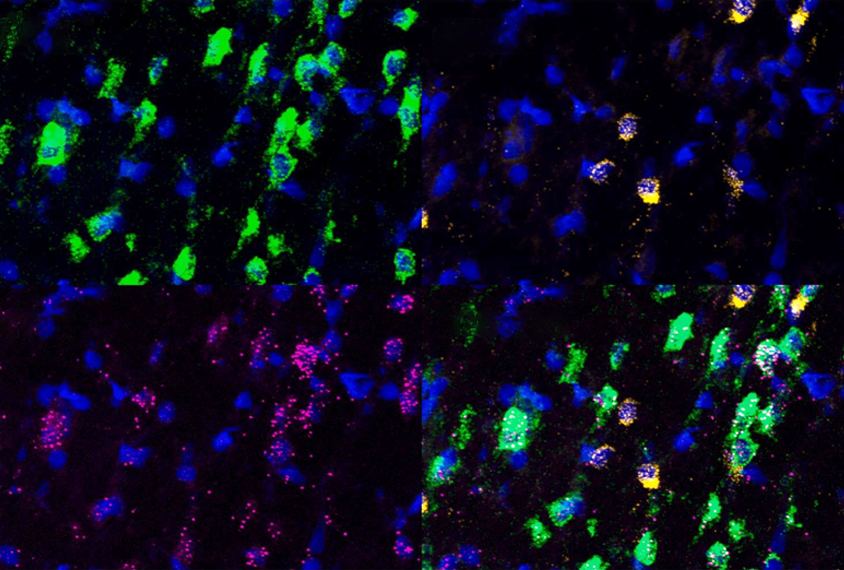
Maternal immune response dulls male rats’ social radar
Male rats prenatally exposed to a maternal immune response have atypical responses to other rats in distress, according to a new study.
Null and Noteworthy: Registered reports; motor measurements; viral DNA
In this edition of Null and Noteworthy, Spectrum talks with a Nature editor about the journal’s move to publish more null results.
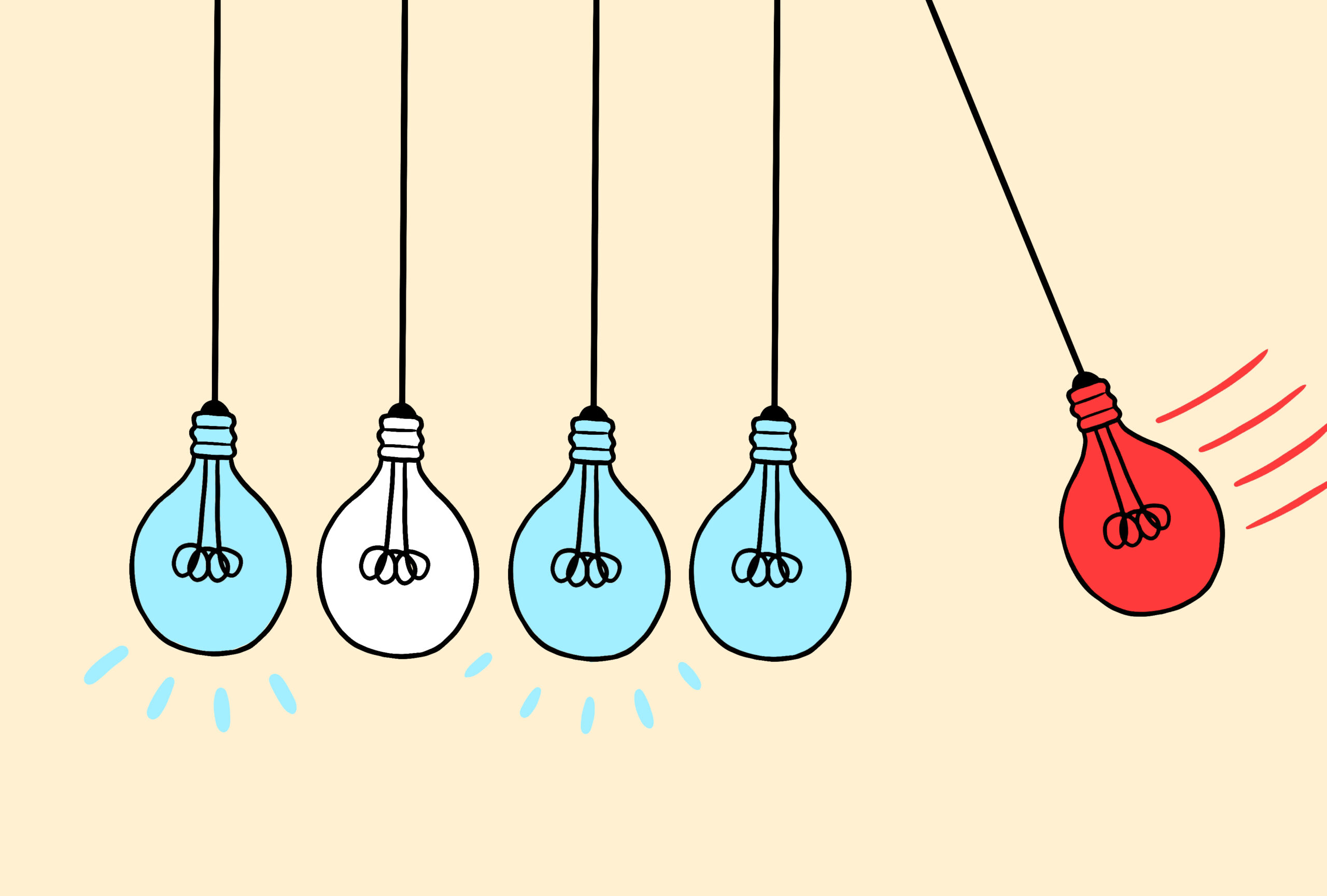
Null and Noteworthy: Registered reports; motor measurements; viral DNA
In this edition of Null and Noteworthy, Spectrum talks with a Nature editor about the journal’s move to publish more null results.
Immunity-linked genes expressed differently in brains of autistic people
Postmortem brain samples from people with one of six conditions, including autism, show distinct signatures of over- and underexpression of immune genes.
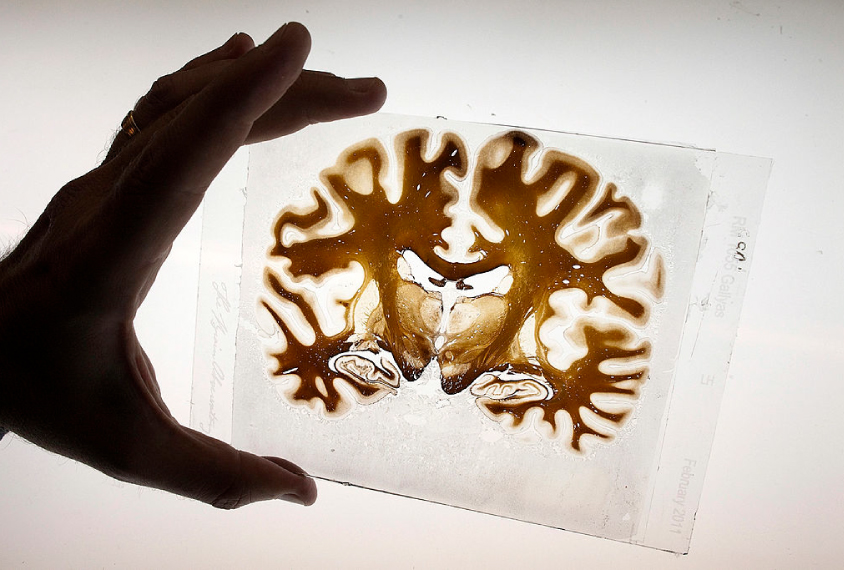
Immunity-linked genes expressed differently in brains of autistic people
Postmortem brain samples from people with one of six conditions, including autism, show distinct signatures of over- and underexpression of immune genes.
Explore more from The Transmitter
During decision-making, brain shows multiple distinct subtypes of activity
Person-to-person variability in brain activity might represent meaningful differences in cognitive processes, rather than random noise.

During decision-making, brain shows multiple distinct subtypes of activity
Person-to-person variability in brain activity might represent meaningful differences in cognitive processes, rather than random noise.
Basic pain research ‘is not working’: Q&A with Steven Prescott and Stéphanie Ratté
Prescott and Ratté critique the clinical relevance of preclinical studies in the field and highlight areas for improvement.

Basic pain research ‘is not working’: Q&A with Steven Prescott and Stéphanie Ratté
Prescott and Ratté critique the clinical relevance of preclinical studies in the field and highlight areas for improvement.
Proposed NIH budget cut threatens ‘massive destruction of American science’
A leaked draft of a Trump administration proposal includes an approximately 40 percent cut to the National Institutes of Health’s budget and a major reorganization of its 27 institutes and centers.

Proposed NIH budget cut threatens ‘massive destruction of American science’
A leaked draft of a Trump administration proposal includes an approximately 40 percent cut to the National Institutes of Health’s budget and a major reorganization of its 27 institutes and centers.